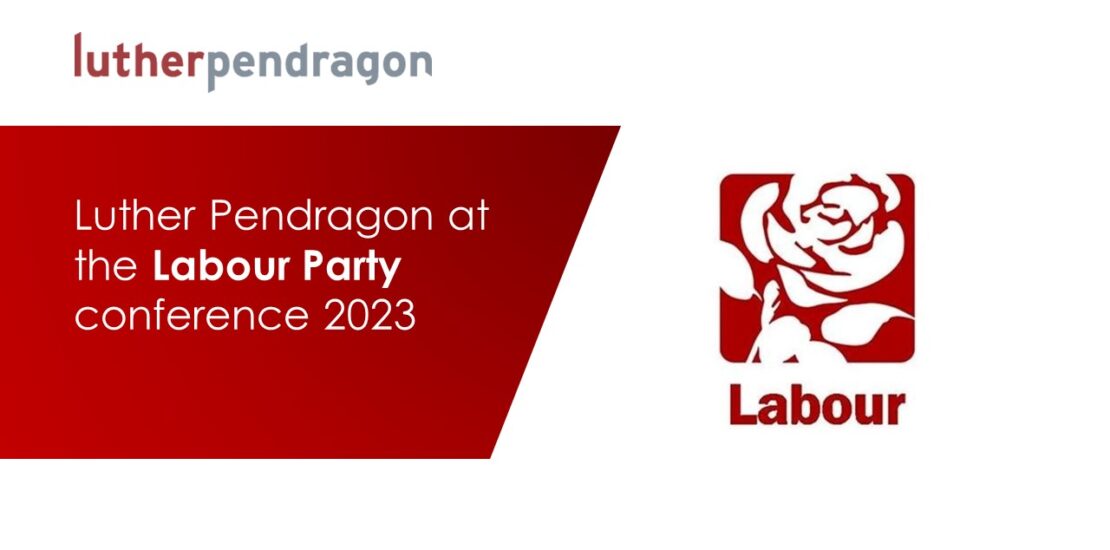- October 13, 2023
- Posted by: lutherpendragon
- Categories: insight, news

With deep-rooted pressure across the NHS, MPs at this week’s Labour Party Conference recognised the scale of the health challenges facing a potential Labour Government. Labour’s health offer remains light on detail, however, the conference allowed shadow ministers to articulate their overarching principles. Consultant Callum Nimmo writes on his health takeaways from the Labour Party Conference:
In his Leader’s speech, Sir Keir Starmer didn’t mince his words when it came to health. Arguing against placing the NHS on a “pedestal”, Starmer signalled that a Labour Government would embark on reform of health and care provision. This was echoed by the Shadow Health Secretary Wes Streeting a day later, who said the NHS is “no longer the envy of the world” and must “reform or die”.
Prior to conference, a Labour plan for doctors and nurses to be paid extra to work overtime on the weekend was floated in the media. This, argue the shadow health team, will ensure the NHS is working round the clock to reduce the massive backlogs it currently has. This plan will sit alongside previously announced plans to boost the NHS workforce by investing in recruitment and expanding the number of medical school places. It’s clear that there is a limit on the quality of care that can be provided to patients if there simply aren’t enough staff.
This argument was repeated at a fringe event hosted by Policy Exchange. Dr Anita Charlesworth, Director of Research at The Health Foundation, pointed out that not enough of the UK’s population works in health and social care to cater for the country’s growing health needs. An ageing population, record vacancies in the NHS, and large numbers of UK health professionals moving to work abroad has left the NHS severely understaffed. Strikes in recent months by staff at every level has only compounded this issue. Solutions which can be implemented on Day 1 of a Labour Government are important but it’s clear Labour’s thinking is focused on the much longer term.
At a separate fringe event hosted by Labour List, Streeting emphatically argued against pulling the “immigration lever” to solve the NHS’ workforce issues. However, given the length of time it takes to train a health professional in any discipline, it remains to be seen whether the plan to pay extra for healthcare workers’ overtime will have a large enough and quick enough impact on waiting times to satisfy the electorate.
There’s also the small matter of cost. In her speech, Shadow Chancellor Rachel Reeves promised “ironclad” fiscal discipline. The few spending pledges on health revolve around abolishing the non-dom tax status. Research from Warwick University predicts this would raise around £3.2 billion per year to the exchequer; a small sum in the grand scheme of the NHS’ £168.8 billion budget. Without much money to go around, it’s clear that for Labour the question remains how the money is spent, rather than simply a case of how much.
So, how could money be spent better on health?
Streeting gave many clues as to where his priorities lie. A topic that came across during his conference speech is prevention – an issue that has been gaining traction among MPs of all parties. A pledge to double the number of diagnostic scanners through a ‘Fit for the Future’ fund was welcomed as a means to help provide the much-needed kit for to spot major conditions at an earlier stage.
Another intriguing line in the speech was Streeting’s pledge to bring healthcare from “hospital to the community”. He argued passionately that primary care would be at the “heart of Labour’s plan for the NHS”, noting the plan to train thousands of additional GPs and cut red tape. While this is undoubtedly welcome, it will take significant time for the first cohort of GPs to begin seeing patients, and Labour could very well be back out of power by then.
Embarking on a programme of reform of the NHS will not be easy for Labour. Differently to the overarching, structural reforms perpetuated by previous Governments, Labour’s reforms would be a shift in emphasis. As Streeting himself said, the NHS should not be seen as a “sickness service” – where you only interact with it when you must. It should be seen as a “health service,” where your interactions are continuous in order to maintain good health through preventative and diagnostic services.
It is also understandable that the Party is seeking to keep its powder relatively dry on this subject – as many of the issues are both expensive and will take time implement. However, Streeting’s main point has certainly landed among many; we can’t keep doing health like this in the UK.
Luther Pendragon is one of the UK’s most highly-regarded independent consultancies, with a 30 year track record of helping organisations – including those in the health and social care sector – understand and manage political risk and tell compelling stories to the people that matter. Contact us to find out how we can help your organisation make an impact.
